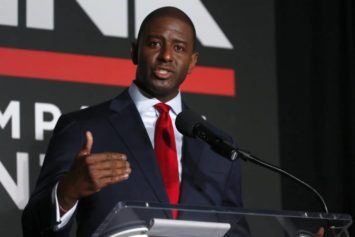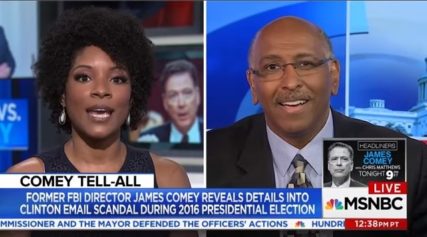Political observers see this week’s elections as a sign that the country is leaning in a more moderate direction with the victory of a Clinton Democrat over a tea party-conservative for governor in Virginia; liberal Bill de Blasio as mayor of New York; the defeat of another tea party-congressional candidate in Alabama; and the re-election of the popular Republican Gov. Chris Christie in New Jersey.
It ain’t necessarily so.
The pragmatic and pugnacious Christie comes across, publicly, as a moderate in some ways, especially after he dropped the overt political bashing of President Obama during the 2012 campaign and praised the president’s response after the Jersey shore was devastated by tropical storm Sandy.
He seems like a hard-working, practical, no-nonsense kind of guy who loves his state and who eschews politics for politics’ sake. He’s the kind of guy voters like because they believe they know him, because they believe he’s more like them. He’s the guy you’d invite over for a beer and believe that he would really show up.
It was that down-to-earth folksy appeal that helped elect George W. Bush to his first term, beating Vice President Al Gore, and convinced voters that he wasn’t rich and distant, the way the Bush team made Sen. John Kerry appear in 2004.
Christie understands he needs the numbers, that coalitions count and, as he said in a campaign ad last month, that “compromise isn’t a dirty word.”
That has helped Christie raise his standing among women, Black and Latino voters and among Democrats. It was a winning strategy for the Republican in an overwhelmingly Democratic state, but will it work for him in the 2016 presidential campaign?
It was clear that being seen as moderate would not secure the GOP nomination in 2012. Candidates who did not tack hard to the right were eliminated early on. Mitt Romney saw that he would have to toe the hard, conservative line if he wanted to be his party’s nominee and hope that he could be moderate enough for the rest of the nation in the general election.
It proved to be a poor plan for the former Massachusetts governor, who confused voters about where he really stood and, essentially, had to convince his supporters that he was pretending to adhere to a position not truly his own for strategic purposes, but they could trust the person they believed him to be.
Christie has a bit of the same problem.
His politics are solidly conservative. He is anti-abortion, opposes same-sex marriage and favors tax cuts that ultimately help the wealthy more than the middle-class. He may not be tea party extreme, but neither is Christie a mere issue or two away from being a liberal, or even a true moderate.
And don’t think the Democratic Party won’t make note of it.
Christie is about to assume the chairmanship of the Republican Governors Association, which means he can travel the country using his popularity to raise money for GOP candidates and practice on the stump, as he campaigns for Republican gubernatorial candidates across the country.
“His policy set in New Jersey is ‘Bush-Romney,’” Democratic strategist Steve Murphy told The Washington Post. “By comparison to the tea party he seems moderate, but he’s not. And Democrats would do well to expose that reality.”
Jackie Jones, a journalist and journalism educator, is director of the career transformation firm Jones Coaching LLC and author of “Taking Care of the Business of You: 7 Days to Getting Your Career on Track.”


